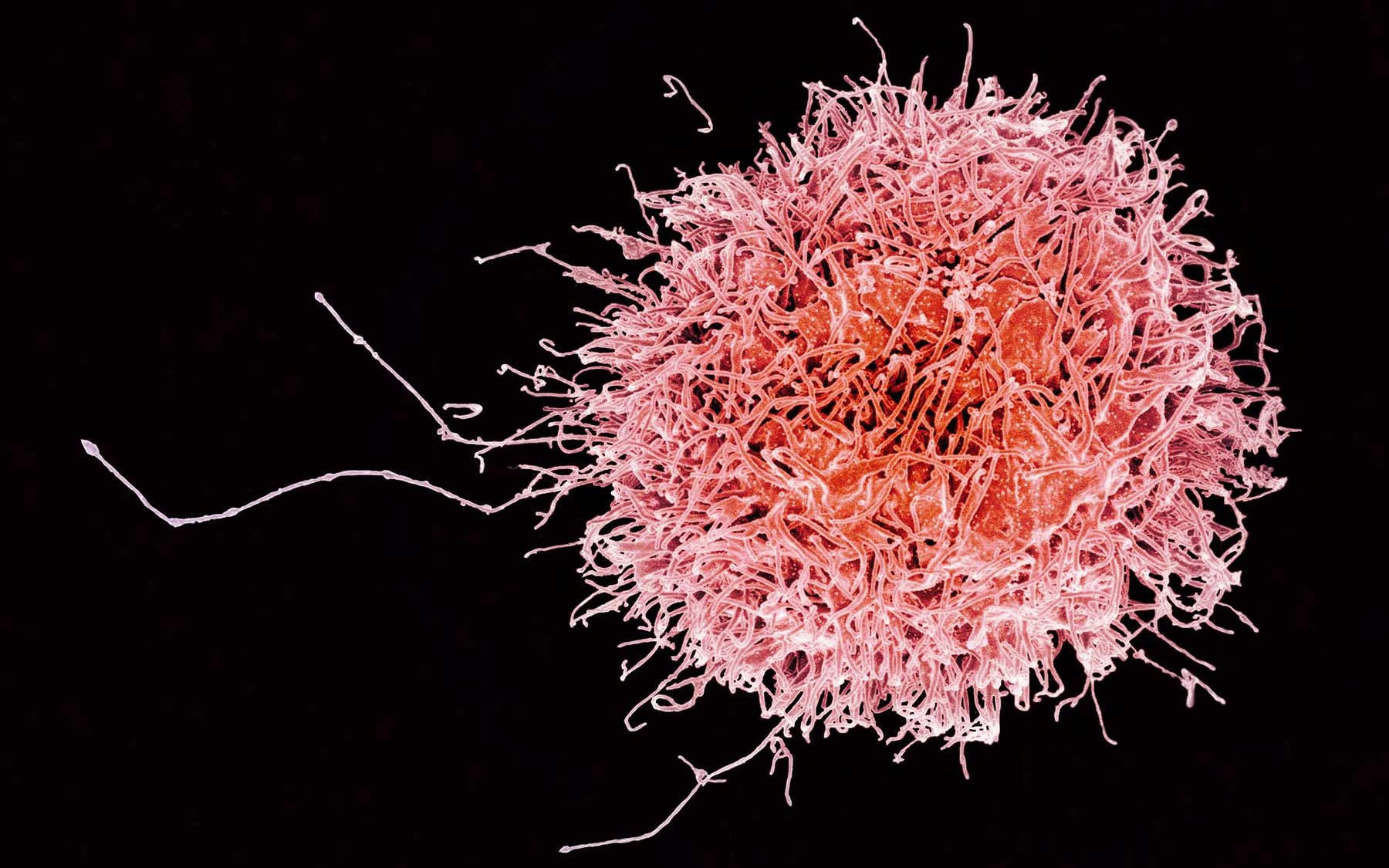Definition of Cancer in Biology: Unleashing the Truth

Cancer, in biology, Definition of Cancer in Biology is a group of diseases characterized by the uncontrolled growth and spread of abnormal cells, which can result in death if not controlled. Cancer cells are cells that grow out of control and may form a mass called a tumor.
A tumor can be cancerous or benign, with a cancerous tumor being malignant and able to spread to other parts of the body.

Credit: www.cshl.edu
What Is Cancer?
Cancer is defined as the uncontrolled growth and spread of abnormal cells within the body. These cells can form a mass called a tumor, which may be either cancerous or benign. A cancerous tumor is considered malignant as it has the ability to invade and spread to other parts of the body.
On the other hand, a benign tumor can grow but does not have the capability to spread. If the spread of cancer cells is not controlled, it can lead to severe health complications and potentially result in death. Cancer is a complex disease that affects various tissues and organs in the body, and its treatment often requires a multidisciplinary approach involving surgery, chemotherapy, radiation therapy, and targeted therapies. Definition of Cancer in Biology
Cancer Cell
A cancer cell is a cell that grows out of control. In biology, cancer is defined as a group of diseases characterized by uncontrolled growth and spread of abnormal cells. The american cancer society (acs) states that if the spread of cancer is not controlled, it can result in death.
Cancer cells start to grow uncontrollably and may form a mass called a tumor. A tumor can be cancerous or benign. A cancerous tumor is malignant, meaning it can grow and spread to other parts of the body. On the other hand, a benign tumor can grow but will not spread.
Understanding the concept of cancer cells and their uncontrolled growth is crucial in biology.
Tumor Formation
Cells growing uncontrollably in biology refer to the formation of a mass called a tumor. This tumor can either be cancerous or benign. A cancerous tumor is malignant, meaning it has the potential to grow and spread to other parts of the body.
On the other hand, a benign tumor can grow but does not have the ability to spread. The definition of cancer in biology involves the uncontrolled growth and spread of abnormal cells. The american cancer society defines cancer as a group of diseases characterized by this uncontrolled growth, which, if left unchecked, can result in death. Definition of Cancer in Biology
Ultimately, cancer cells are cells that grow out of control, leading to the formation of tumors.
Types Of Tumors
Cancer, in biology, is a group of diseases characterized by uncontrolled growth and spread of abnormal cells. These cells can form a mass called a tumor. Tumors can be classified as benign or malignant. Benign tumors do not spread to other parts of the body and their growth is controlled.
On the other hand, malignant tumors are cancerous and have the ability to grow and spread to other areas.
Common Types Of Cancer
Cancer is defined as a group of diseases characterized by the uncontrolled growth and spread of abnormal cells. Breast cancer, lung cancer, prostate cancer, colorectal cancer, and skin cancer are common types of cancer. Breast cancer specifically refers to the development of cancerous cells in the breast tissue.
Similarly, lung cancer occurs when cancerous cells form in the lungs, while prostate cancer affects the prostate gland. Colorectal cancer involves the colon and rectum, and skin cancer occurs when abnormal cells form in the outer layer of the skin. Definition of Cancer in Biology
These various types of cancer can have different causes, symptoms, and treatment options, but they all involve the uncontrolled growth of abnormal cells in the body.
Causes Of Cancer
Cancer is a group of diseases characterized by the uncontrolled growth and spread of abnormal cells. Genetic factors play a significant role in causing cancer, as certain gene mutations can increase the risk of developing the disease. Environmental factors, such as exposure to carcinogens like tobacco smoke and uv radiation, can also contribute to the development of cancer.
Additionally, lifestyle factors like an unhealthy diet, lack of physical activity, and tobacco and alcohol use can increase the risk of developing cancer. Understanding the causes of cancer is crucial for prevention and early detection, as it allows individuals to make informed choices about their health and reduce their risk of developing the disease. Definition of Cancer in Biology
Risk Factors For Cancer
Cancer is a group of diseases characterized by the uncontrolled growth and spread of abnormal cells. It can result in death if not controlled. Age is a risk factor for cancer, as the chances of developing cancer increase with age.
Family history also plays a role, as certain genetic mutations can increase the risk of cancer. Exposure to carcinogens such as tobacco smoke, radiation, and certain chemicals can also increase the risk. Unhealthy lifestyle choices, including poor diet, lack of physical activity, and excessive alcohol consumption, can contribute to the development of cancer. Definition of Cancer in Biology
Understanding these risk factors can help individuals take proactive steps to reduce their risk of developing cancer.
Process Of Cancer Development
Cancer, according to the american cancer society (acs), is a group of diseases characterized by uncontrolled cell growth and spread. The initiation stage marks the start of abnormal cell growth. In the promotion stage, the cells continue to divide and multiply rapidly.
Progression occurs when the abnormal cells invade nearby tissues. Finally, metastasis takes place when cancer cells spread to other parts of the body. Cancer cells grow uncontrollably, forming tumors that can be either benign or malignant. Benign tumors grow but do not spread, while malignant tumors can invade surrounding tissues and spread to other areas.
Understanding the process of cancer development is crucial for diagnosis, treatment, and prevention.
Signs And Symptoms Of Cancer
Cancer, in biology, is defined as a group of diseases characterized by the uncontrolled growth and spread of abnormal cells. The signs and symptoms of cancer can vary depending on the type and stage of the disease. Unexplained weight loss can be a warning sign of cancer, as well as fatigue and pain.
Changes in the skin, such as the development of new moles or changes in existing ones, can also indicate the presence of cancer. It is important to note that these symptoms can be caused by other conditions as well, so it is important to consult a healthcare professional for an accurate diagnosis. Definition of Cancer in Biology
Early detection and treatment of cancer can significantly improve outcomes and survival rates.
Diagnosis Of Cancer
Cancer in biology is defined as a group of diseases characterized by the uncontrolled growth and spread of abnormal cells. These cells can form a mass called a tumor, which can be either cancerous or benign. A cancerous tumor is malignant and has the potential to grow and spread to other parts of the body.
On the other hand, a benign tumor may grow but will not spread. Diagnosis of cancer involves various methods, including physical examination, imaging tests, and biopsy. Physical examination helps to identify any lumps, abnormal growths, or other signs of cancer. Definition of Cancer in Biology
Imaging tests such as x-rays, ct scans, and mris provide detailed images of the body that help in detecting tumors. Biopsy involves the removal of a tissue sample for laboratory testing to confirm the presence of cancer cells. Overall, early diagnosis plays a crucial role in the effective treatment of cancer.
Treatment Options For Cancer
Cancer, as defined by the american cancer society, is a group of diseases characterized by uncontrolled cell growth. If left unchecked, cancer can lead to death. Cancer cells are those that grow out of control and can form tumors. There are two types of tumors: cancerous (malignant) and benign.
Cancerous tumors can spread to other parts of the body, while benign tumors do not. When it comes to treating cancer, various options are available, including surgery, radiation therapy, chemotherapy, and immunotherapy. Surgery involves removing the tumor or the affected part of the body. Definition of Cancer in Biology
Radiation therapy uses high-energy rays to kill cancer cells. Chemotherapy involves using drugs to kill or slow down cancer cells, while immunotherapy boosts the body’s immune system to fight cancer cells.
Prevention And Screening For Cancer
Cancer, in biology, is defined by the american cancer society as a group of diseases characterized by the uncontrolled growth and spread of abnormal cells. These cells can form a mass called a tumor, which can be either cancerous or benign. Definition of Cancer in Biology
A cancerous tumor is malignant and can grow and spread to other parts of the body, while a benign tumor can grow but will not spread. Prevention and screening for cancer are crucial for early detection and treatment. Healthy lifestyle choices, such as maintaining a balanced diet and engaging in regular exercise, can reduce the risk of developing cancer. Definition of Cancer in Biology
Regular screenings and genetic testing can also help identify any potential risks or abnormalities, enabling timely intervention and management.
Advances In Cancer Research
Cancer is a group of diseases characterized by the uncontrolled growth and spread of abnormal cells. These cells can form a mass called a tumor, which can be either cancerous or benign. A cancerous tumor is malignant and can spread to other parts of the body, while a benign tumor grows but does not spread.
In recent years, there have been significant advances in cancer research, particularly in the field of targeted therapies and precision medicine. Targeted therapies involve using drugs or other substances to specifically target cancer cells, while precision medicine tailors treatment plans based on an individual’s genetic makeup and specific characteristics of their cancer. Definition of Cancer in Biology
These advancements have revolutionized cancer treatment and offer new hope for patients.
Living With Cancer
Cancer, defined by the american cancer society (acs), is the uncontrolled growth and spread of abnormal cells. If uncontrolled, it can result in death. Cancer cells are those that grow out of control, forming tumors. Tumors can either be cancerous or benign.
Malignant, cancerous tumors have the ability to grow and spread to other parts of the body. Benign tumors, on the other hand, can grow but do not spread. Living with cancer requires supportive care to cope with the physical and emotional challenges. Definition of Cancer in Biology
Supportive care includes a range of services to improve the quality of life for individuals with cancer and their families. Coping strategies can also play a crucial role in managing the impact of cancer on daily life.
Cancer Awareness And Advocacy
Cancer, according to the american cancer society (acs), is a group of diseases characterized by the uncontrolled growth and spread of abnormal cells. If left unchecked, it can result in death. A cancer cell is a cell that grows out of control.
This uncontrollable growth can lead to the formation of a mass called a tumor. Tumors can be either cancerous (malignant) or non-cancerous (benign). Cancerous tumors have the ability to grow and spread to other parts of the body, while benign tumors may grow but do not spread. Definition of Cancer in Biology
Awareness campaigns and support organizations play a crucial role in educating the public about cancer and advocating for research, prevention, and early detection.
Frequently Asked Questions On Definition Of Cancer In Biology
What Is An Accurate Definition Of Cancer?
Cancer is a group of diseases characterized by uncontrolled growth and spread of abnormal cells, as defined by the american cancer society (acs). These cells can form a mass called a tumor. Tumors can be either cancerous or benign. Cancerous tumors, also known as malignant tumors, have the ability to grow and spread to other parts of the body. Definition of Cancer in Biology
On the other hand, benign tumors can grow but do not spread. In biology, cancer is described as a malignant tumor that grows locally through invasion and spreads systematically through metastasis. It is an abnormal condition marked by the presence of such tumors.
Cancer is often associated with an evil or destructive nature due to its ability to spread and cause harm.
What Is The Definition Of Cancer And A Tumor In Biology?
Cancer is a group of diseases characterized by uncontrolled growth and spread of abnormal cells. These cells may form a mass called a tumor. A tumor can be cancerous or benign. A cancerous tumor is malignant, meaning it can grow and spread to other parts of the body. Definition of Cancer in Biology
On the other hand, a benign tumor can grow but will not spread. Cancer is a condition marked by the presence of malignant tumors that invade and spread destructively. Definition of Cancer in Biology
What Is Another Definition Of Cancer?
Cancer is defined as a group of diseases characterized by the uncontrolled growth and spread of abnormal cells. If not controlled, cancer can be life-threatening. Cancer cells are cells that grow out of control and can form a mass called a tumor. Definition of Cancer in Biology
There are two types of tumors: cancerous (malignant) and non-cancerous (benign). A cancerous tumor has the ability to grow and spread to other parts of the body, while a benign tumor can grow but will not spread. Cancer can also be described as an abnormal bodily state marked by the presence of tumors or as something evil or malignant that spreads destructively. Definition of Cancer in Biology
What Are 2 Types Of Cancer?
There are two types of cancer: malignant and benign. Malignant cancer refers to a tumor that can grow and spread to other parts of the body. It is characterized by uncontrolled growth and invasion of abnormal cells. If left untreated, malignant cancer can be life-threatening. Definition of Cancer in Biology
On the other hand, benign cancer refers to a tumor that can grow but does not spread to other parts of the body. Unlike malignant cancer, benign tumors are not life-threatening and can often be easily removed. Both types of cancer involve the abnormal growth of cells, but the distinction lies in their behavior and potential to spread. Definition of Cancer in Biology
What Are The Characteristics Of Cancerous Cells?
Cancerous cells are characterized by uncontrolled growth and spread, potentially leading to death. Definition of Cancer in Biology
What Is The Difference Between A Cancerous And Benign Tumor?
A cancerous tumor is malignant and can grow and spread to other parts of the body. A benign tumor can grow but will not spread. Definition of Cancer in Biology
How Does Cancer Start In The Body?
Cancer starts when cells begin to grow out of control and can form a mass called a tumor.
Can Cancer Be Deadly?
Yes, if the spread of cancer is not controlled, it can result in death. Definition of Cancer in Biology
Conclusion
Cancer, a complex and devastating disease, is defined by the american cancer society (acs) as a group of diseases characterized by the uncontrolled growth and spread of abnormal cells. These cells, if left unchecked, can result in death. The growth of these cells can lead to the formation of a mass called a tumor.
Tumors can be either cancerous or benign, with cancerous tumors being malignant and capable of spreading to other parts of the body, while benign tumors do not spread. In biology, cancer is described as a malignant tumor that grows locally through invasion and systemically through metastasis.
It is important to understand the definition of cancer, as it helps in the diagnosis, treatment, and prevention of this life-altering disease. By studying and raising awareness about cancer, we can work towards better understanding it and finding ways to combat its devastating effects. Definition of Cancer in Biology






